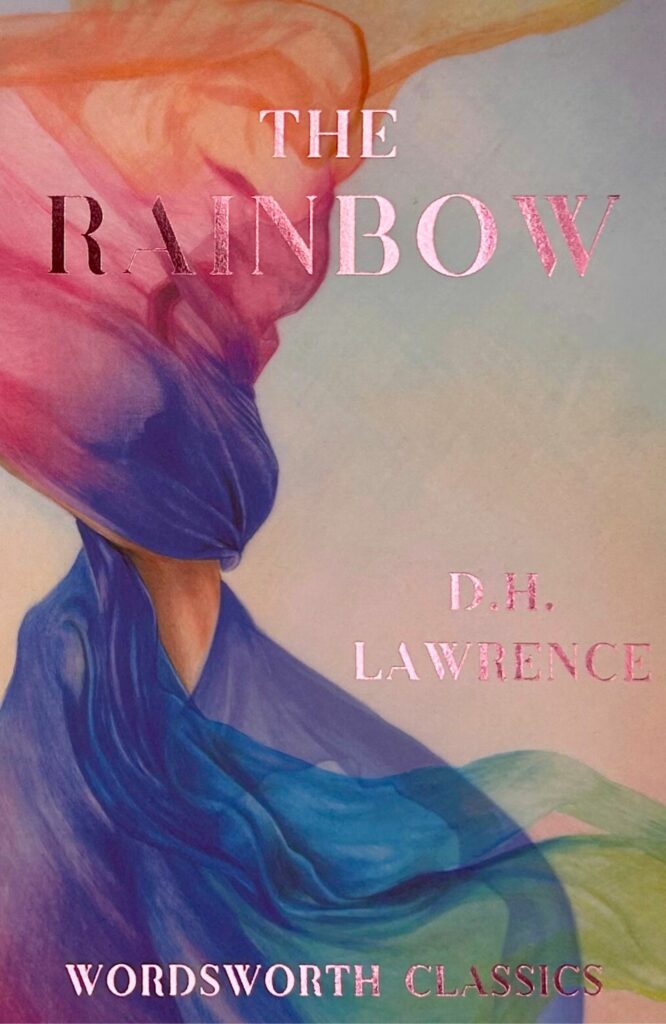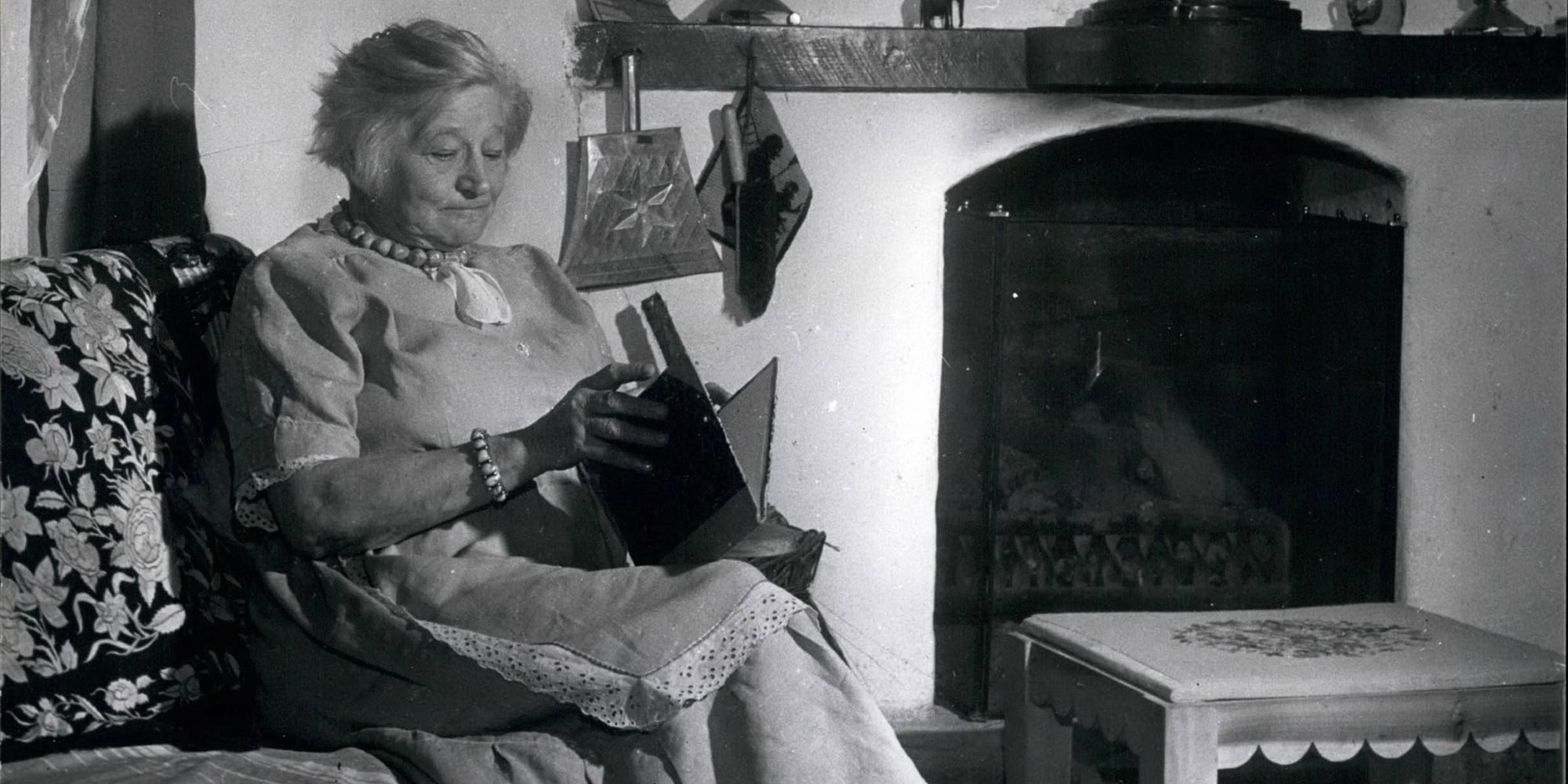
What if?
How might a different marriage have impacted on D.H. Lawrence’s writing career? David Ellis considers a literary counterfactual.
There are some historians who are inclined to ask `what if’ questions: what if the Spanish Armada had managed to land on these shores, or our air force had lost the Battle of Britain? These speculations are known in the trade as counterfactuals and not hard to dream up. How different would the history of Europe have been, for example, had Marshall Blücher arrived at Waterloo with his Prussians not a little but too late? Sometimes they relate more directly to individuals and to matters more apparently trivial. It is known, for instance, that when Napoleon arrived at Waterloo he was suffering from hemorrhoids. Would the outcome have been any different if he had been in better health?
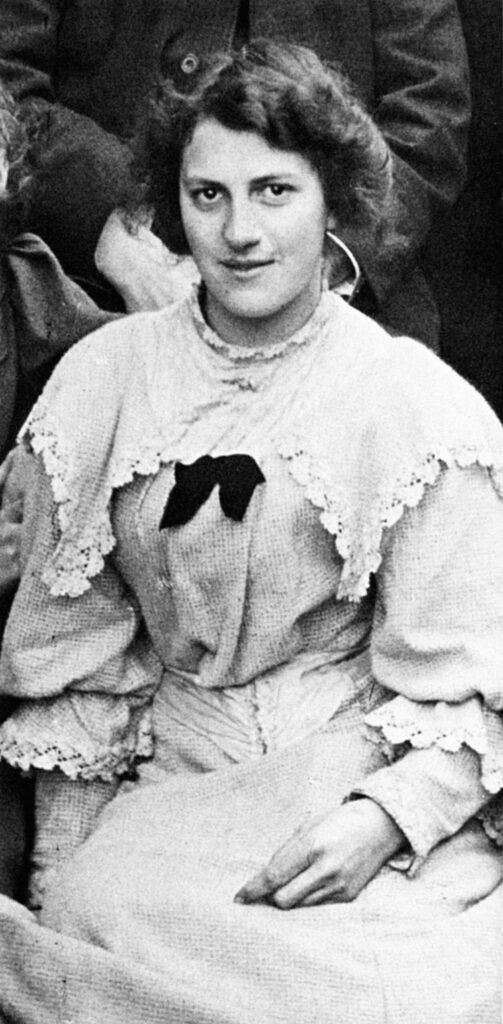
Jesse Chambers Wood (1887-1944)
Questions like this last one are sometimes asked by biographers but occasionally by their subjects themselves. From his adolescence until his early twenties, the closest female companion of D. H. Lawrence was a girl called Jessie Chambers who lived on a farm three miles from the Nottinghamshire mining town in which he was born. She was the person with whom he shared all his literary and artistic interests, and it was only to her that he showed whatever he happened to be writing. Much later in his life, he was walking with an old friend from his home town who had the temerity to ask him why it was that he had not married Jessie. Annoyed as he first was by the question, he then thought a little and is reported as replying with: `It would have been a fatal step. I should have had too easy a life, nearly everything my own way, and my genius would have been destroyed.’ One can save Lawrence’s blushes here by interpreting the word `genius’ in the old sense of special gift or talent, but it does seem probable that too much devoted respect would not have suited him and that he thrived best in an atmosphere where admiration was accompanied by contradiction and conflict. Certainly, the woman he did in fact marry, Frieda Weekley, provided plenty of both.
Marriage is a major life-choice but there are others of an apparently less important nature which can appear crucial in retrospect. Lawrence’s father was a coalminer and he himself was only able to become the kind of writer he was because of the changes to England’s national education system which took place towards the end of the 19th century and the beginning of the next. He was clever enough to pass examinations that allowed him both to go to the grammar school and, after a pause when he was a clerk in a surgical goods factory, follow a process which led to a course for prospective elementary school teachers at Nottingham University. Once he was qualified, his family’s financial situation made him anxious to find a job as soon as possible and, frustrated by the lack of response to numerous applications, determined to accept a post wherever one was offered. Eventually he was called for interview at a school in Stockport near Manchester but, for whatever reasons, he was not accepted there. His reaction was similar to that of many of us who have applied for jobs we did not get, and he decided that he was glad he had been rejected in that Stockport seemed like a vile place anyway, `seething with strangers’. This failure did not much matter because almost immediately he was interviewed at a school in Croydon and accepted as a teacher there.
In the meantime, he had been writing in all kinds of forms, poetry, short fiction and a first novel which would become The White Peacock. Without his knowledge, Jessie Chambers sent off a number of his poems to a new literary magazine they had both been very impressed by. It was called the English Review and edited by Ford Madox Hueffer who, after the First World War had broken out, changed his name to Ford Madox Ford. He was both impressed and intrigued by what he read and invited Lawrence to come and see him in his London office. After realising how much other work this young teacher had already written, in addition to his poems, he did all he could to promote him, publishing more of his writing in the English Review and introducing him to all kinds of literary figures. It was because of this initial contact with Hueffer that Lawrence met Ezra Pound and was able to hear Yeats recite his poetry at a literary gathering. He also took him to meet H. G. Wells who, as the son of parents who had met when they were domestic servants in a country house and then went on to keep a sports shop in Bromley, was the role model for those from the lower classes aiming, like Lawrence, to make a living out of writing. It was perhaps partly because of Wells that Jesse remembered Lawrence saying at one point in this period that there would come a day when he would be making £2000 a year (his primary teacher’s annual salary was around £100).
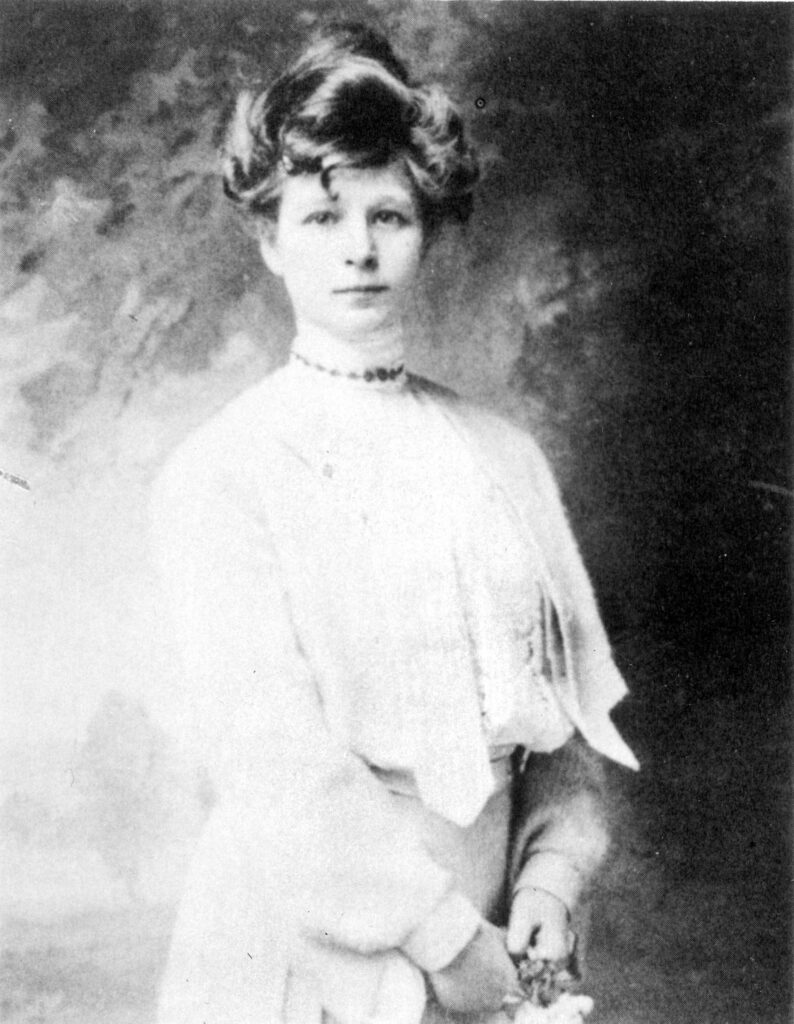
Frieda Weekley
Another person to whom Lawrence was introduced at this time was the minor writer Edward Garnett, to whose wife Constance some of us owe our first acquaintance with Tolstoy and Dostoevsky because she was the translator of many of their works. Garnett was very well connected in the publishing world and for a considerable period acted as Lawrence’s unpaid literary agent and advisor. He had recently built a replica of a large 15th century cottage in a beautiful spot near Oxted in Surrey and on several occasions invited Lawrence to visit him there. This was quite a tricky journey from Croydon, involving a train into London and then one out again, but the point here is that it would have been far trickier from Stockport. Had Lawrence in fact secured the post in that town, of course, it would have been very difficult if not impossible for him have accepted Hueffer’s invitation to a meeting, and a whole train of events would not have been set in motion. In recalling his first contacts with Lawrence, Hueffer remembered having told him (via a letter to Jessie Chambers) that `a literary career depended enormously on chance’. Lawrence himself might have felt how much good fortune there had been in his failure to secure a post in Lancashire and then his success in finding one which, while not in London itself, was in striking distance of the London literary scene.
Lawrence was familiar enough with W. E. Henley’s Invictus, with its concluding famous lines: `I am the master of my fate / I am the captain of my soul’, to refer to it in his letters (and not ironically). It could reasonably be argued that he was a young man of such unusual talent and energy that he would have quickly managed to become recognised whether he happened to be teaching in Land’s End or John o’ Groats. But not getting the job in Stockport, and then finding one in Croydon, certainly made everything easier. Few of his biographers would be reluctant to describe that day when he went to see his former university teacher, Ernest Weekley, in a leafy suburb of Nottingham but found himself instead spending time with his wife, as `fateful’; but there are more seemingly minor moments which could be considered almost as significant and his failure to please in Stockport is one of them. Whether one ascribes these to fate, accident or luck may only be a matter of philosophical choice but a problem of bothering to consider them in one’s own life is that a single even apparently small change necessarily entails so many others. Had Lawrence gone to Stockport, for example, he would have no doubt have had quite different life experiences which would have made him, in some sense, a different person. This gives an air of paradox to counterfactual thinking in that the self-asking questions such as `What would have happened had I married Jessie Chambers?’, is not the same as the one who would have come into being had the contingency being considered actually come to pass. We tend to contemplate how one change in our past would make the life we now lead better (or worse!) but that change would typically have brought in its wake so many others that the consequences become incalculable. All of which makes counterfactual thinking something of a waste of time for individuals while not preventing them from wanting to indulge in it. As for great historical events, so may other factors come into play that it seems doubtful to me whether it can ever prove profitable either.
Main image: Frieda Lawrence (a.k.a Emma Maria Frieda Johanna Freiin von Richthofen, Frieda Weekley and Frieda Lawrence Ravagli) in retirement in Taos, New Mexico. Credit: Keystone Press / Alamy Stock Photo
Image 1 above: Jesse Chambers Wood (1887-1944) a friend of D.H. Lawrence and prototype for Miriam in ‘Sons and Lovers.’ Credit: Granger – Historical Picture Archive / Alamy Stock Photo.
Image 2 above: Frieda Weekley. Credit: Granger – Historical Picture Archive / Alamy Stock Photo.
Books associated with this article
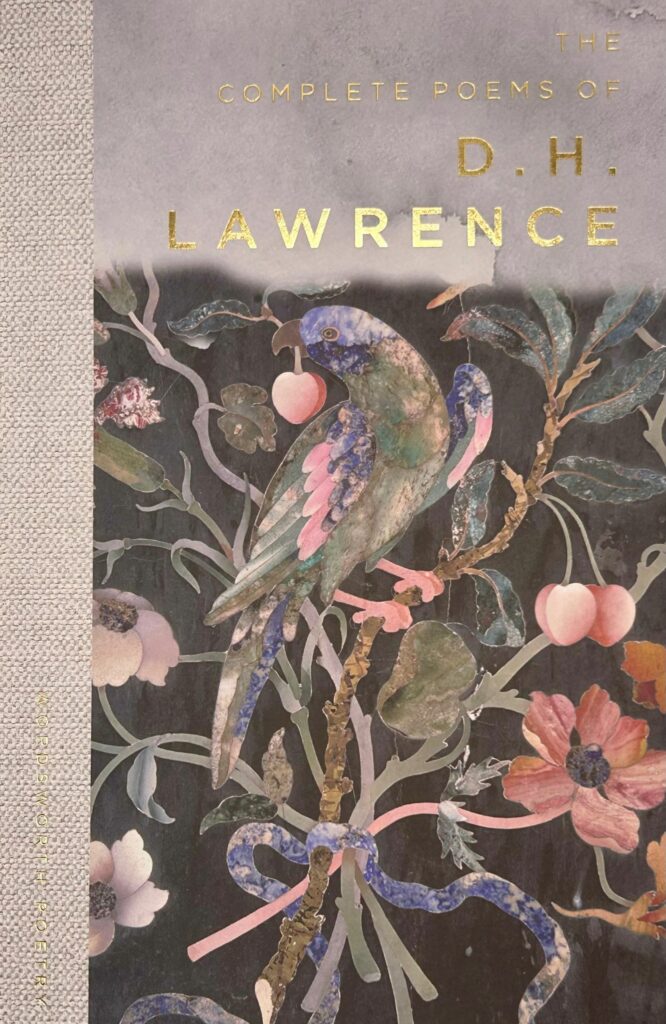
The Complete Poems of D.H. Lawrence
D.H. Lawrence
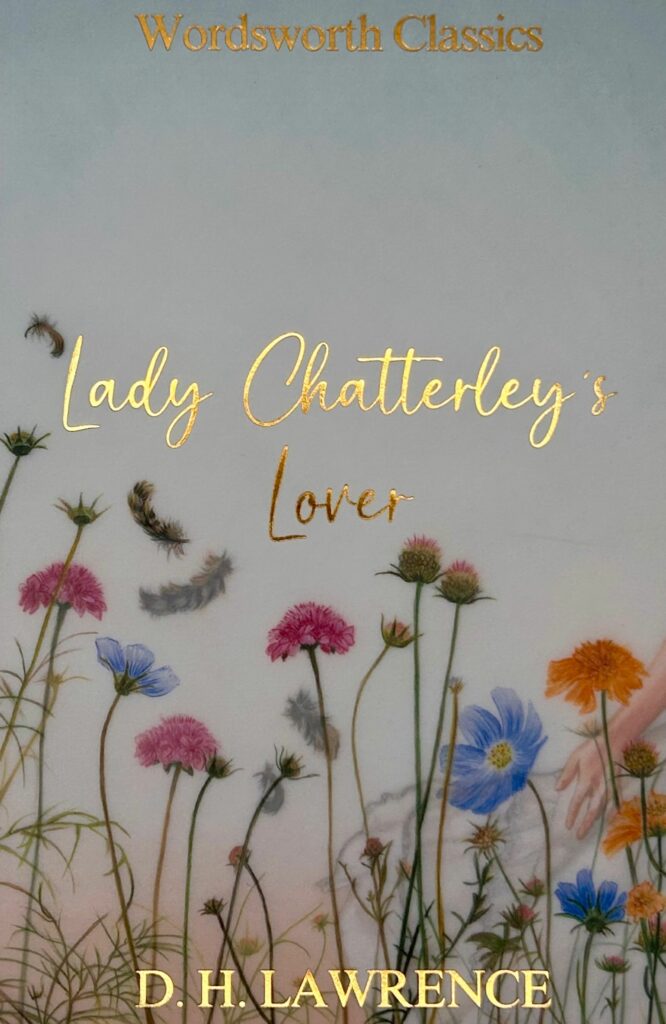
Lady Chatterley’s Lover
D.H. Lawrence
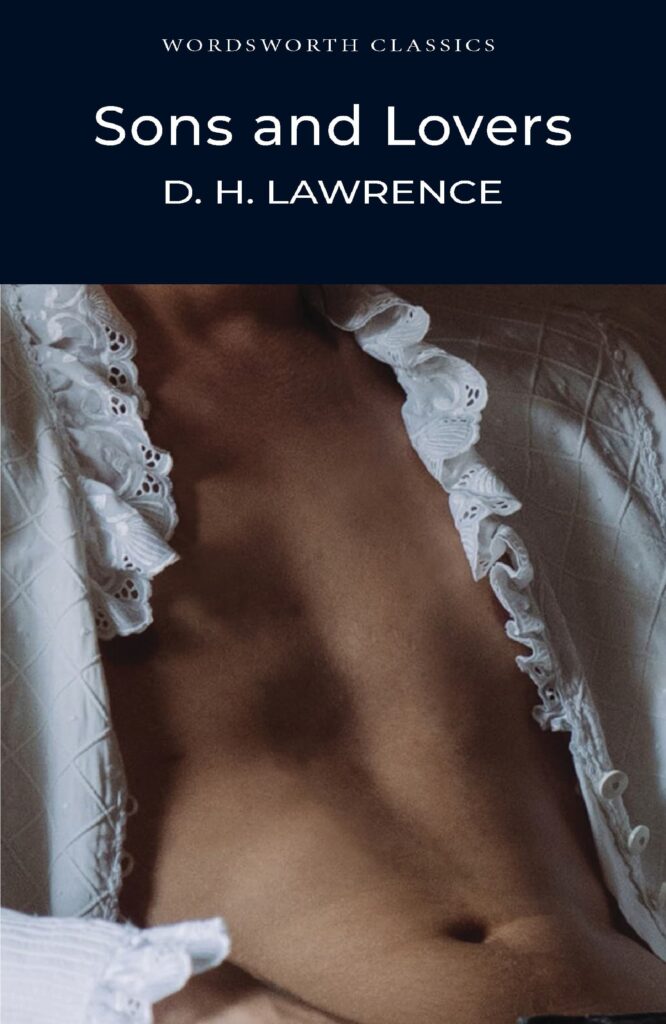
Sons and Lovers
D.H. Lawrence
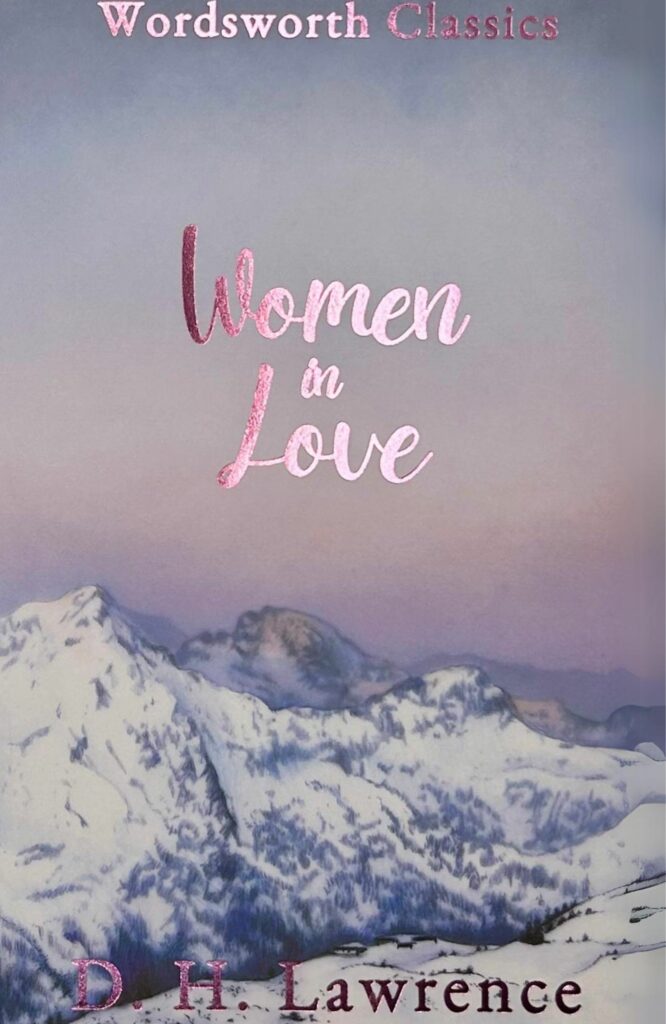
Women in Love
D.H. Lawrence
